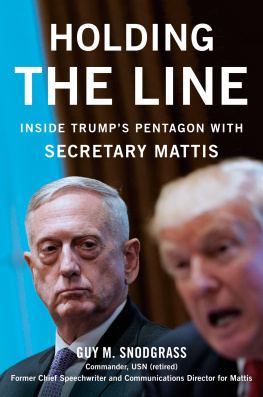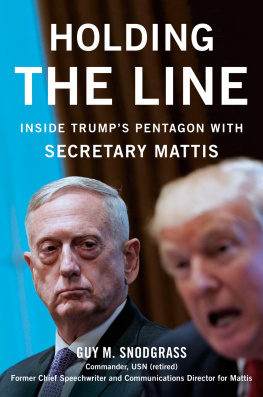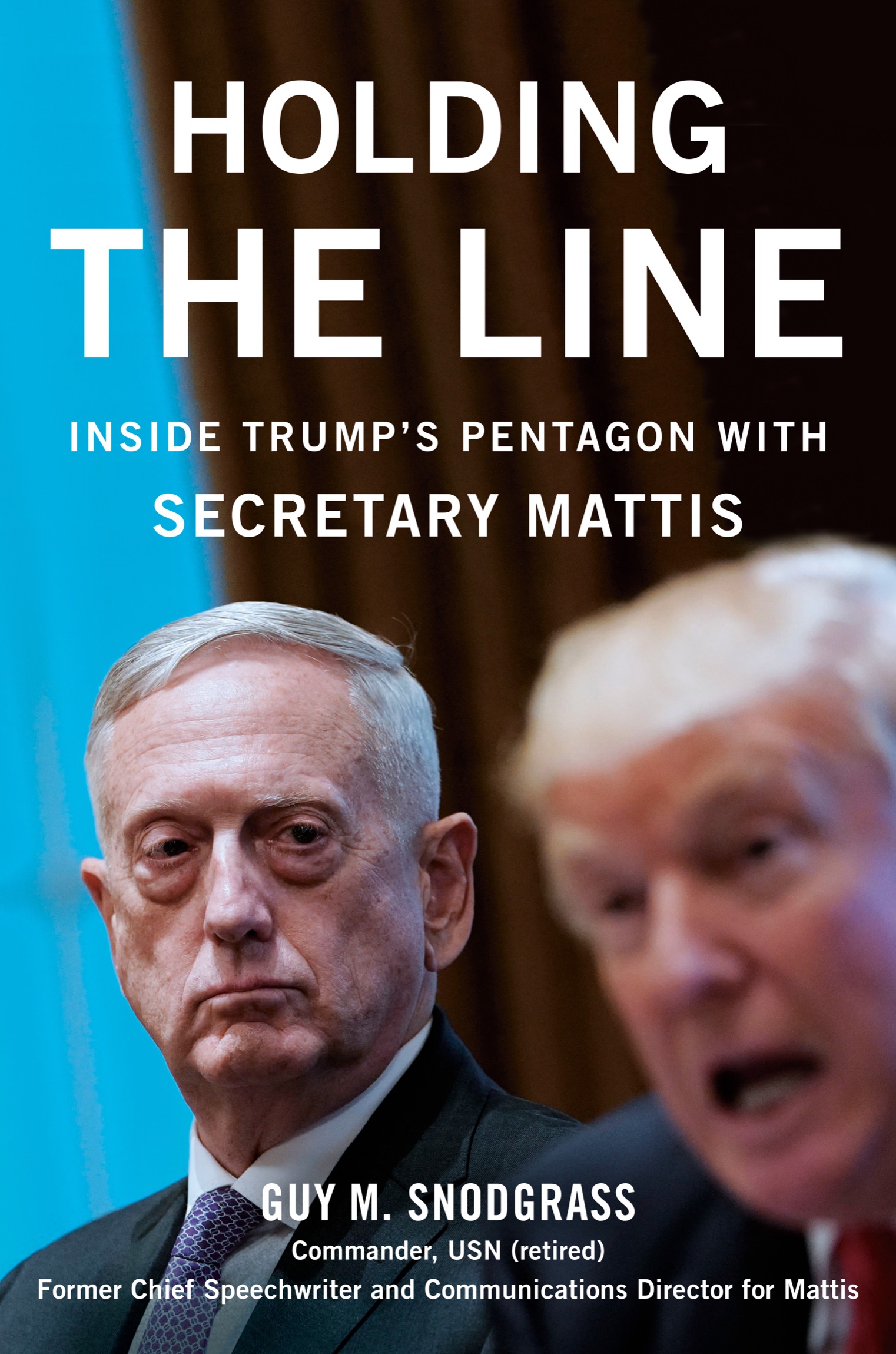I, James Norman Mattis, do solemnly swear that I will support and defend the Constitution of the United States against all enemies, foreign and domestic; that I will bear true faith and allegiance to the same; that I take this obligation freely, without any mental reservation or purpose of evasion; and that I will well and faithfully discharge the duties of the office on which I am about to enter. So help me God.
We in the Department of Defense recognize that there are a lot of passions running about in our country, as there ought to be in a vibrant Republic. But for those privileged to wear the cloth of our nation, to serve... you stand the rampartsunapologetic, apolitical, defending our experiment in self-governance. And you hold the line.
AUTHORS NOTE
For more than twenty years, I served proudly in the United States military alongside men and women from all walks of life. Despite our wide-ranging experiences and backgrounds, we shared a belief in core values that can sound clichd in todays highly polarized environment: duty, honor, integrity, commitment, mission, country.
These values are why we serve. These values are why we sacrifice time away from home and our families. These values are what make the US military the most admired institution in our country, and perhaps one of the only institutions to retain the respect and trust of the vast majority of the American people.
That trust is precious. It is fragile.
If lost, it may be gone forever.
For seventeen months of my final years in uniform, I worked directly for a man who understood that danger.
Secretary of Defense James Mattis joined the administration with a reputation as one of the most storied living leaders in our armed forces. He saw it as his job, his duty, his mission, not only to restore Americas military might but to protect the militarys reputation for independence and nonpartisanship.
Mattis sought to strengthen alliances wherever he could find them. He joined forces with like-minded world leaders and a handful of senior administration officials widely considered to be the adults in the room.
In May 2017, Mattis addressed the graduating class at the US Military Academy at West Point, telling them to hold the line, confronting our nations foes with implacable will... to hold the line, living by a moral code regardless of who is watching... and to hold the line, loyal to the country and Constitution as we defend our fundamental freedoms.
For nearly two years, Secretary James Mattisalong with millions of men and women serving in the Department of Defensedid just that. They held the line during the most challenging and unusual times the military has faced in generations. They held the line with an administration in Washington, DC, willing to challenge, question, and sometimes undermine the long-standing traditions and views of Americas military leadership, and those of our friends and allies abroad.
Then, on December 20, 2018, Mattis resigned.
INTRODUCTION
Marines dont know how to spell the word defeat.
GENERAL JAMES MATTIS
Thursday, December 20, 2018The White House
Secretary of Defense James Norman Mattis exited the West Wing, climbing into the lead vehicle of his motorcade to speed back to the Pentagon. He would not be coming back.
Hed had enough. He was done.
His resignationand its blunt mannerlaunched shock waves through a town that by now seemed impervious to the seismic blasts regularly exploding throughout the Trump administration.
Officially, Mattis had gone to the Oval Office to reverse the presidents tweet-born announcement of a precipitous troop pull-out from Syria. He failed, and when that happened, he informed Trump he was leaving.
But that wasnt the whole truth. Theres precious little whole truth in Washington. Mattiss outrage over Syria, while real, was only a pretext to announce a decision he had made months before to cut his losses and move on.
And why not? To survive in Washington, you need alliances. One by one, what administration allies Mattis once had vanished into the night: Secretary of State Rex Tillerson, National Security Adviser H. R. McMaster, and now Trumps chief of staff, John Kelly, had one foot out the door.
Trump later tweeted that Mattis was retiring. He wasnt.
Arriving at the Pentagon, Mattis immediately distributed copies of his previously composed resignation letter to defense reporters. The letter minced few words. Its key section highlighted the disparity between a president and his secretary of defense, saying:
My views on treating allies with respect and also being clear-eyed about both malign actors and strategic competitors are strongly held and informed by over four decades of immersion in these issues. We must do everything possible to advance an international order that is most conducive to our security, prosperity and values, and we are strengthened in this effort by the solidarity of our alliances.













